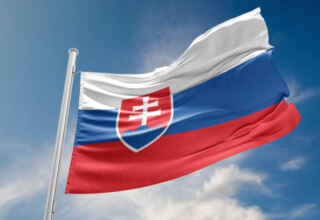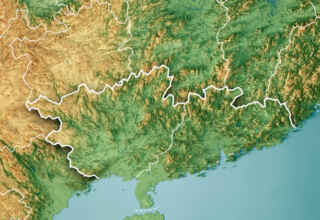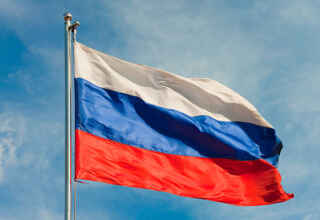
Richard D. Anderson, Jr., is Professor Emeritus and Research Professor of Political Science at the University of California, Los Angeles, where he has taught since 1989. He obtained the Ph.D in Political Science from the University of California, Berkeley, in 1989 and also earned a Master’s in Public Affairs in 1973 from what has now been renamed, with his urging, the School of Public and International Affairs at Princeton University. He graduated from Davidson College in North Carolina with a B.A. in German. Between completing the MPA and starting the Ph.D in 1982, he spent nine years working in national security affairs for both the Executive Branch and the House of Representatives. As of July 1, 2021, he has retired from UCLA to make his professorship available to a younger scholar. But he expects to continue both research and teaching.
Originally a specialist on the Soviet Union, he has published Public Politics in an Authoritarian State (Cornell, 1993). The book uses the theory of American politics to explain Soviet foreign policy. Like other states, authoritarian states are ruled by coalitions, not individuals, although the coalition often chooses some individual to personify it rto outsiders both at home and abroad. Rivals for the role of personifying the coalition compete for membership in the coalition by winning the allegiance of constituents, who in the Soviet case were mainly territorial and functional administrators, not the general population. The rivals compete by proposing domestic programs and foreign policies that echo the symbolism of their respective domestic proposals. Since their strategies for world affairs are designed to win over domestic audiences poorly informed about the international scene and are tailored to echo their visions of domestic development, the strategies are ill-designed for the foreign scene, and the adaptiveness of foreign policy to international conditions is further eroded by choosing it through bargaining that sustains the coalition at the expense of linking or separating issues regardless of their substantive interaction on the world scene. Since these conclusions are drawn from applying the theory of politics in a near-democracy to the politics of the only other kind of state, a dictatorship, they potentially apply uniformly to all states. The argument explains why states routinely adopt foreign policies that cannot advance their interests or those of the population that the state governs or rules. When the policy issue becomes one of collective survival, such as sustainability or climate change, that finding should be worrisome, even alarming.
When the Soviet Union fragmented in 1991 and Russians began voting in authentic, if already fraudulent, elections, Anderson had already realized that its political discourse had substantially changed, to the point that he was finding it difficult to read the Russian of the political speeches that he had learned to use to track the competing appeals of the rivals for membership in the ruling coalition. He decided to investigate the effects of change in political discourse, realizing that changes that had begun before Russians began voting could not be an effect of the elections—as is often presumed when political discourse changes. Regarding it as intellectually unsatisfactory, to the point of being unethical, to write about language without learning linguistics, he began educating himself in that discipline as well as scanning and hand editing largish corpora of Soviet, transitional and post-Soviet political speeches into a computer data base for analysis. That project led to a series of publications culminating in Discourse, Dictators and Democrats (Routledge, 2014). It displays the linguistic evidence that political discourse in Russia became more similar to standard Russian before the shift from a dictatorship to at least an incipient democracy and the experimental evidence that the changes in discourse affect how many people in a given population develop the identification with political leaders that is necessary to overcome the disincentive to joining either a small minority that oppresses other citizens or a large minority or even a majority that votes for some political candidate or slate of candidates.
In Discourse, Dictators and Democrats Anderson also reports a comparative investigation of whether rapprochement with a standard language also characterizes enfranchisement wherever else outside Russia the move toward democracy has begun. That comparative investigation perforce relies on less systematic evidence than he has produced for Russian, merely because it takes too many years to compile the systematic evidence and the analyst must learn the specific linguistics of each of the many languages that have been used as political discourse. Nevertheless he can report suggestive evidence for many cases. That investigation draws his attention to the impact of colonialism on changing language use not just in the colonized territories but especially in the colonial homelands, where ruling dictatorial coalitions (usually but not always taking the institutional form of monarchies) defined themselves by standard languages contrasted to the dialects spoken by the ruled. Colonialism teaches ruling coalitions in Europe that the gap separating their standard languages from European dialects is usually far narrower than the gulf separating any European language from most African, Asian, American or Oceanic languages. Rulers respond by extending racial identification as white to the ruled in Europe as opposed to labeling colonized populations as black, brown, yellow or red. Racism enables suffrages to emerge in European states and their settler colonies that become universal suffrage when casualties and economic losses in global warfare occasioned by states’ generalized inability to conduct sound foreign policy deprive Europeans of their previously disfranchised colonial populations. Thus racism causes democracy to appear.
This finding has led Anderson to focus his current research on the political and intellectual consequences of the racism developing out of colonialism for contemporary democracies, while he still publishes occasionally about Russia. He is also completing a book that complements the presentation of evidence about how discursive change turns dictatorships into democracies with presentation of evidence from before 1750, when nearly every state was dictatorial, that discourses of spatial distance both make and preserve dictatorship.












